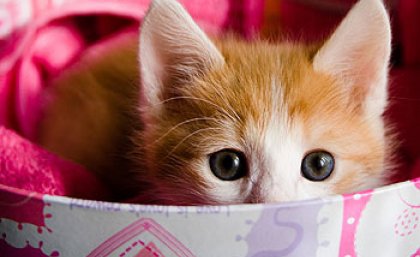
Traumatised cats are getting another shot at rehabilitation thanks to a novel research method being explored at The University of Queensland.
PhD student Nadine Gourkow is looking into a technique known as “gentling”, where cats receive petting that mimics allorubbing and allogrooming (rubbing or grooming by another cat) in short and repetitive sessions to change their emotional state from negative to positive.
The exercises are designed to change cats’ perspective of the shelter environment, give them control over the situation, help relieve them of psychological trauma and teach acceptance of association with unfamiliar humans.
“The research aims to understand the relationship between a cat’s emotions and the body’s defence mechanisms and manipulate both of them,” Ms Gourkow said.
During her research Ms Gourkow worked with 238 cats, out of which 45 were rescued from a hoarder and were living in unhealthy conditions without adequate care.
“Many of the cats were terrified and showed defensive aggression and were poorly socialised to humans,” Ms Gourkow said.
But after a few days of Ms Gourkow’s “gentling” therapy, the cats began responding positively to people. They were eventually transformed into friendly, domesticated cats and were re-homed with new owners.
“We are hoping that by inducing positive emotions we can increase secretions of mucosal antibodies, which will help prevent them from becoming infected with pathogens that cause upper respiratory disease,” Ms Gourkow said.
Ms Gourkow is seeking financial support to develop a mechanical gentling tool that provides similar therapeutic benefits for very fearful cats that are too aggressive to touch.
Her study was supported by Morris Foundation and an anonymous donor who wanted to alleviate emotional stress in cats and give them healthier and happier lives.
It is hoped that Ms Gourkow’s work will help in understanding the emotional states of cats living in shelters, reduce upper respiratory disease and allow many more of them to
eventually find new homes.
Professor Clive Phillips, Director of the UQ Centre for Animal Welfare and Ethics, is supervising Ms Gourkow’s research.
Media: Nadine Gourkow, (ngourkow@telus.net), Erin Pearl (07 5460 1229, e.pearl@uq.edu.au) or Divya Parthasarathy at UQ Communications (07 3365 2049)












